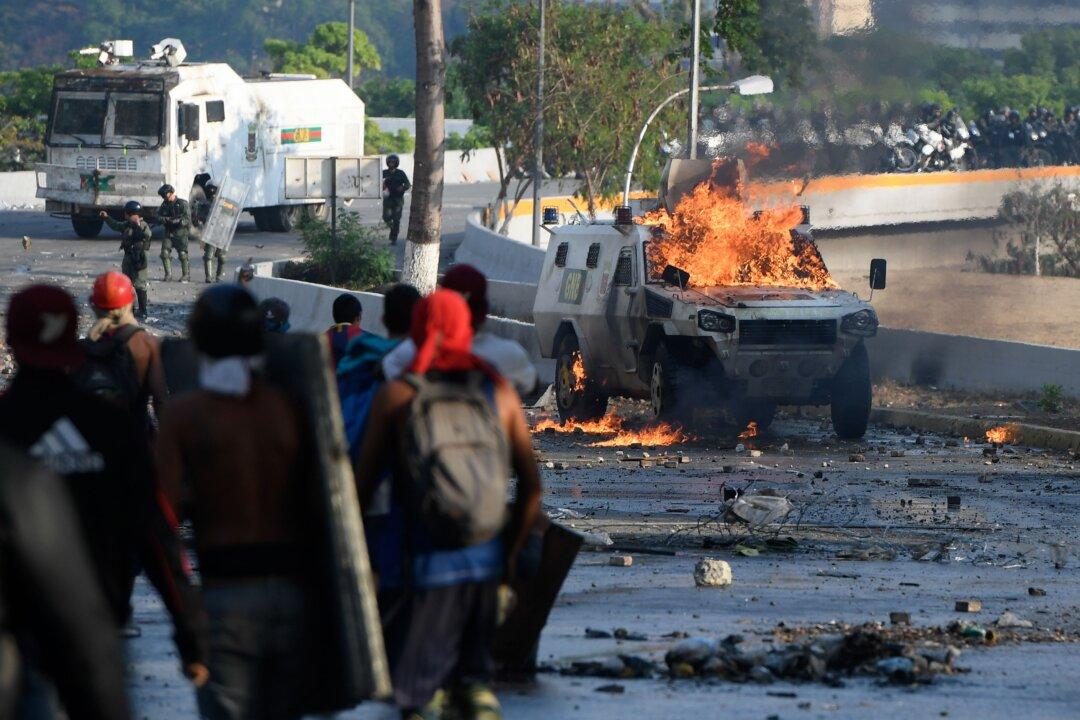Commentary
Venezuela is at a crossroads after recent violence and riots, following a video by U.S.-backed opposition leader Juan Guaidó that called on Venezuelans to back a military uprising against Venezuelan dictator Nicolas Maduro.

Venezuela is at a crossroads after recent violence and riots, following a video by U.S.-backed opposition leader Juan Guaidó that called on Venezuelans to back a military uprising against Venezuelan dictator Nicolas Maduro.